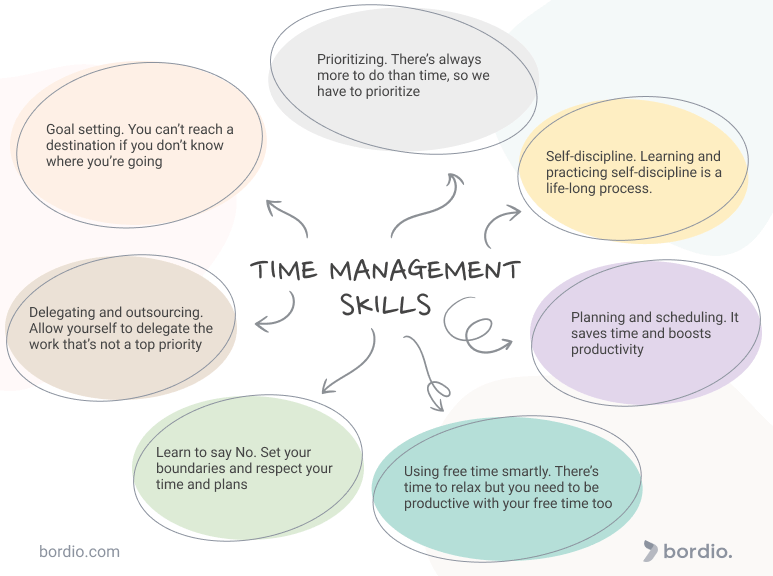Academic overload is among the top reasons for students’ stress, anxiety, and, as a result, burnout. The fear of failure and the pressure to succeed make them struggle with every assignment:
Willing to deal with tasks the best way possible and get high grades, students get exhausted by such overwhelms. Indeed:
It takes work to organize all your time and resources to manage heavy academic workloads successfully. Some sacrifice quality and grades; others prefer delegating tasks to third-party specialists like law assignment websites, custom essay writing services, etc. One way or another, this process requires time management and organization skills. Otherwise, you may fall victim to academic burnout, with all its devastating consequences to physical and mental health.
In this post, you’ll see how to prevent them by properly organizing and managing your academic workload.
1. Optimize Your Study Place
No matter how capable you are of abstracting from distractions, they influence your productivity at study. Optimizing your workplace can boost your focus and organize the process for maximum efficiency.
First of all, choose a proper place where you’ll do assignments and any other academic-related projects. In the ideal world, it would be a separate room, free from people traffic, and with minimum interruptions. If you don’t have an opportunity to organize a room, think of a corresponding corner in your campus or apartment.
Ensure your study space has a table and a comfortable chair to support your back. Place the table near a window, as daylight helps our brains stay active. Keep the place tidy, and put a houseplant near the table. (Green plants reduce stress and can improve productivity by up to 47%!)
Bring all the necessary study tools and resources to your workspace: books, maps, dictionaries, and other relevant guides to facilitate your studies. If traffic and other noises distract you, consider noise-canceling headphones. If you’re okay with background music while working, consider instrumental compositions without lyrics to block distractions and make your study sessions more enjoyable.
2. Assess Yourself
What is your learning style? Do you better consume and remember information in the morning, or prefer working at night? Do you better work in blocks or a one-time frame?
Self-awareness and self-assessment will help you understand time- and workload management techniques that will or won’t work for you. Do you struggle with procrastination? Do you retain information quickly or need to revise it several times to understand it?
It’s okay that some proven tactics won’t fit your character traits, learning style, study habits, etc. The point is to figure out what works for you and take the most out of it.
3. Master Time Management

Time management skills are critical for college students as they allow them to work smarter, not harder, with less stress but more opportunities to achieve goals, manage workload, and get better academic results.
The catch:
Most students consider time management one skill, limiting it to proper planning and creating numerous to-do lists for every occasion. The truth is that time management is a set of different abilities to master:
- Goal-setting
- Decision-making
- Self-awareness
- Prioritization
- Planning
- Organization
- Focus
- Patience
- Stress management
- Communication
Do your best to develop and polish each skill from this list. Complementing each other, they’ll allow you to organize and manage your academic workload without rush, anxiety, and burnout.
4. Schedule Everything, Even Your Breaks
Your academic workload won’t get in chaos if you visualize it and craft a master schedule that includes all the activities, breaks, holiday vacations, and out-of-class activities. It’s about long-term planning:
Start by gathering information about what awaits you during a semester: syllabi, exam dates, meetings, and project deadlines. Craft two calendars:
- A semester calendar with significant projects, exams, and due dates. Color-code different types of tasks to distinguish and manage them faster.
- A weekly calendar with classes, exercise routines, meetings, housekeeping, and other activities you’ll do during the semester. Remember to leave some space for assignments you’ll get.
You are free to make those calendars digital or physical. We recommend a wall calendar for bigger plans (semester) so you can see the whole picture and manage short-term plans accordingly.
Both calendars will make it easier to create daily to-do lists in the morning or every night before bed. Keep your daily to-do list short (5-6 items) to ensure you’ll be on time with everything.
Such lists will help you learn to resist distractions, procrastination, and temptations to mess up your schedule.
5. Prioritize Like a Boss
Prioritization is necessary if you want to manage your time and work efficiently. Remember that multitasking doesn’t work, and you physically can’t deal with task overloads if you don’t arrange tasks accordingly.
Here are some strategies to master:
- Block some courses. Beat your FOMO (fear of missing out), and don’t take all the classes your college offers. You have many options and freedom of choice whether or not to attend them. Prioritize courses that fit your interests and also consider their schedule: Will you be physically able to visit all of them? Unlike Hermione in the Harry Potter series, you don’t have a time-turner to attend several classes at a time.
- Prioritize your assignments. Try the “Today, Maybe Today, and Tomorrow” technique to manage your college assignments. Take a blank doc and create three columns: Today is for urgent tasks you must complete today; Maybe Today is for assignments you’d like to complete today; Tomorrow is for tasks that can wait. It will help you feel organized and control your workload, especially during busy periods like midterms or final weeks of the semester.
- Learn to say no. For a college student, it might be tempting to try everything: participate in sports, visit different clubs, organize social projects, etc. Also, fellow students can ask you for help, and it’s hard to say no. Please only accept some requests or offers that come your way; otherwise, you’ll overwhelm yourself and burn out. If a request doesn’t align with your priorities or doesn’t fit into your schedule, it’s okay to give it up.
6. Delegate Whenever Applicable
When your schedule is chock-full and deadlines are looming, it’s okay to ask for help and delegate some tasks to your friends or family.
Sure, they won’t be able to learn the material or craft an academic project for you. However, you can delegate some out-of-class activities: shopping or housekeeping, for example, or walking with your dog so you can save some time and focus on college assignments.
Think of the routine tasks you can delegate and ask.
As for writing tasks and academic projects, you can also delegate some when applicable. After you’ve prioritized tasks, take those extra urgent or, vice versa, insignificant and outsource them to corresponding writing services. You don’t have to ask them to do all the work for you. They can assist you with research, outlining, reference lists, or proofreading/editing.
Find the balance.
7. Take the Most Out of Technology
Today, the tech world offers so many tools, instruments, and valuable resources that it would be a sin not to take advantage of them. AI is on the rise, and AI-based assistants can make your college life more manageable:
Why not start with a time tracker to measure where your time goes? It can help you see what drains your time the most and re-organize your schedule for better productivity.
Why not get the most out of AI-based grammar checkers, writing prompt generators, text generators, AI paper checker instruments, and other tools that will save you time? They are excellent helpers for managing academic workloads and assisting you with research and low-effort repetitive tasks. Use them for:
- Searching answers to “what is” and “how to” questions
- Generating writing ideas when you feel stuck
- Crafting approximate outlines for your future academic papers
- Polishing your draft for better grammar, style, and readability
8. Set Targets for Each Weak
Heavy schedules and complex tasks can be daunting to see on your calendars. Stress levels rise, and you get anxious about whether you can deal with that workload at all. The following tactics can help:
Break up your academic assignments and projects into chunks (sub-tasks) and give them particular completion dates. This approach will make complex tasks easier to manage and provide a sense of accomplishment as you complete each step.
Working week by week is the best method for focusing and getting things done. Divide the entire project into smaller tasks, each with its deadline. Set a target for each week: this week is for research, the next one is for outlining, etc.
Tip: Feel free to set mini-rewards for yourself as you complete each sub-task. It will motivate you to keep going.
9. Remember About Self-Care
Physical and mental health are critical for your academic and overall success. Please don’t underestimate the role of sleep (aim for 7-8 hours each night) and proper nutrition (add fish, green vegetables, and nuts to your menu):
A well-rested and fueled mind can focus, learn, and retain information better.
Don’t give up physical exercises for hours at a computer screen! Even a short walk in the evening will reduce stress and boost your energy levels.

Photo: Marymount.edu
So, here’s the plan:
- Create a self-care practice. Remember the eight dimensions of well-being and ensure you practice self-care in each one: physical, mental/emotional, intellectual, environmental, spiritual, financial, occupational, and social. Find what works best for you in each dimension.
- Set boundaries. Figure out yours and stick to them as they allow you to (finally!) take time for yourself. It echoes the “learn to say no” technique we mentioned above.
- Block time. Stress comes when we don’t know what’s going to happen next. And while you can’t always predict this, you can block (set aside) time for a specific task to mitigate that stress of uncertainty. Think of activities you enjoy: reading, movies, walking with friends, you name it! Such breaks from academic workloads aren’t a luxury but a must for better performance and work-life balance.
Over to You
When overloaded with academic responsibilities, organizing and managing everything may be challenging without sacrificing your well-being and work-life balance. The nine tactics from this article will help you emerge victorious from this fight:
Start with self-awareness and self-assessment, optimize your study place, and master prioritization and delegation — and you’ll win. Stellar time management and self-care checklists do wonders.


